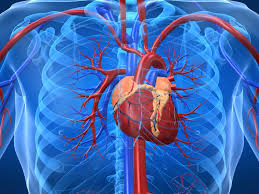
Diagnosed with Cancer? Your two greatest challenges are understanding cancer and understanding possible side effects from chemo and radiation. Knowledge is Power!
Learn about conventional, complementary, and integrative therapies.
Dealing with treatment side effects? Learn about evidence-based therapies to alleviate your symptoms.
Click the orange button to the right to learn more.
- You are here:
- Home »
- Blog »
- side effects ID and prevention »
- Hawthorn Extract for Chronic Heart Failure
Hawthorn Extract for Chronic Heart Failure

These results suggest that there is a significant benefit in symptom control and physiologic outcomes from hawthorn extract as an adjunctive treatment for chronic heart failure.
I supplement with hawthorn extract daily. I supplement with a number of supplements shown by research to be heart healthy. I do this because I have been diagnosed with:
- Chemotherapy-induced cardi0myopathy
- Chemotherapy-induced Atrial Fibrillation
- Possibly Marfan’s Disease (runs in my family-)
I am writing this post in order to encourage people with chronic heart failure, as defined in the study linked below, to add Hawthorn extract to their daily heart regimen.
I have been able to manage my cardiovascular disease without any conventional heart medications. I originally tried metoprolol, had a bad reaction to it and decided to try non-conventional therapies.
I am not anti-heart meds, I am simply offering Hawthorn as either a primary or complementary therapy shown to provide heart health.
What is Hawthorn Extract?
David Emerson
- Cancer Survivor
- Cancer Coach
- Director PeopleBeatingCancer
Recommended Reading:
- Taurine for Chemo-Induced Congestive Heart Failure (CHF)
- A-fib therapies- Catheter Ablation, Drug Therapy or… Nothing?
- Congestive Heart Failure- Coenzyme Q(10) Therapy
- Sleep Problems for Heart Failure-5 Fixes
Hawthorn extract for treating chronic heart failure
“Hawthorn extract is advocated as an oral treatment option for chronic heart failure. Also, the German Commission E approved the use of extracts of hawthorn leaf with flower in patients suffering from heart failure graded stage II according to the New York Heart Association…
Objectives-To assess the benefits and harms as reported in double‐blind randomised clinical trials of hawthorn extract compared with placebo for treating patients with chronic heart failure…
Main results- Fourteen trials met all inclusion criteria and were included in this review. In most of the studies, hawthorn was used as an adjunct to conventional treatment.
Ten trials including 855 patients with chronic heart failure (New York Heart Association classes I to III) provided data that were suitable for meta‐analysis. For the physiologic outcome of maximal workload, treatment with hawthorn extract was more beneficial than placebo.
- Exercise tolerance were significantly increased by hawthorn extract.
- The pressure‐heart rate product, an index of cardiac oxygen consumption, also showed a beneficial decrease with hawthorn treatment.
- Symptoms such as shortness of breath and fatigue improved significantly with hawthorn treatment as compared with placebo.
- No data on relevant mortality and morbidity such as cardiac events were reported, apart from one trial, which reported deaths (three in active, one in control) without providing further details.
- Reported adverse events were infrequent, mild, and transient; they included nausea, dizziness, and cardiac and gastrointestinal complaints.
Authors’ conclusions- These results suggest that there is a significant benefit in symptom control and physiologic outcomes from hawthorn extract as an adjunctive treatment for chronic heart failure.”


